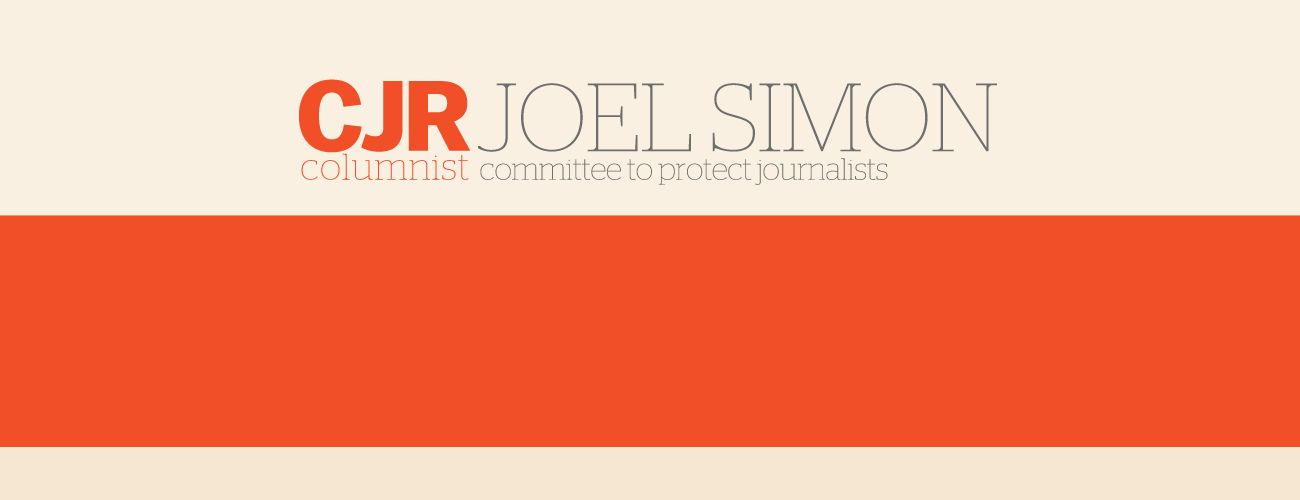Sign up for the daily CJR newsletter.
On Wednesday, Turkish Public Prosecutor Irfan Fidan announced major new developments in the Jamal Khashoggi murder investigation. The dissident Saudi journalist and Washington Post columnist was strangled and dismembered almost immediately after entering the Saudi Consulate in Istanbul on October 2 as part of a pre-planned operation, Fidan claimed.
Another senior Turkish official also offered an explanation as to why Khashoggi’s body has not yet been found: His remains may have been dissolved in acid, and dumped down a well on the grounds of the Saudi consulate. All of this new information was made public soon after a top Saudi prosecutor departed Turkey after two days of meetings in Istanbul which Turkish officials described as frustrating.
In the weeks following the Khashoggi murder, an unprecedented wave of media coverage fueled global outrage. It also put intense pressure on the Trump administration and ultimately the Saudi leadership, which after a series of lies was forced to acknowledge its role in Khashoggi’s murder (they still claim it was a rogue operation).
The latest developments announced by Turkish authorities this week also received extensive media coverage. But with pipe bombs being sent to prominent political figures along with CNN; with a Nazi sympathizer murdering 11 worshippers at a synagogue in Pittsburgh; and with midterm elections approaching, the Khashoggi story has been blasted off the front pages, at least in the US.
The changing media focus means that justice in the Khashoggi murder will depend less on global indignation and more on a methodical, systematic investigation into the crime. While Turkish authorities have done a credible job thus far, they are too conflicted to bring the investigation to a successful conclusion. Ultimately, justice depends on an impartial, international investigation led by the United Nations.
RELATED: The challenge of reporting the Khashoggi story
To be sure, what we know about the Khashoggi killing has for the most part come from Turkish authorities. Essential details about the crime were leaked to pro-government Turkish media, and subsequently confirmed by journalists themselves. These include the arrival and departure in Istanbul of a 15-man hit squad that included members of Crown Prince Mohammed bin Salman’s security detail and a forensic doctor. Journalists have also reported on the extensive cover-up, including the use of a body double whose role was to make it appear that Khashoggi left the Saudi Consulate alive.
Turkish authorities have been adept at using sensational leaks to drive global media coverage and ratchet up the pressure on the Saudis. The Trump administration has also felt the heat. It has been unable to stake out a consistent position. President Trump initially said he did not “like hearing” about the killing; he then pledged to get to the “bottom of it” before affirming that Saudi arms sales could not be put in jeopardy; he said he believed the Saudi denials; he then called the murder “bad stuff” and expressed support for the investigation. Finally, Trump seemed to throw up his arms in exasperation at what he described as “the worst cover up ever” (no argument there).
The Turks have their own motivations for pushing forward the investigation, and while these are far from transparent, we can safely bet they have nothing to do with a concern for press freedom or the rights of journalists. In fact, Turkey is the world’s leading jailer of journalists, according to information compiled by CPJ, and Erdogan has overseen a ruthless crackdown on the Turkish media that has gone on for years.
Instead, Turkey’s aggressive investigation of the Khashoggi murder seems driven in part by a power play against a regional rival, although some have speculated that Erdogan has a personal antipathy toward the Crown Prince, who he views as reckless. Turkey’s ultimate goal may be to compel the Saudis to reach some sort of agreement, which could include a recognition of responsibility and a commitment to invest in the Turkish economy, which has been on the skids following the devaluation of the Turkish lira. One signal that the Turks may be looking for a deal is that they have been holding back their most compelling piece of evidence, an audio tape purportedly of the murder itself recorded in the Saudi consulate. That recording has not been made public, although the Turks did allow CIA director Gina Haspel to have a listen.
It is precisely because of the possibility that the Turks may be willing to play ball with the Saudis that a credible international investigation is essential. CPJ, along with Amnesty International, Human Rights Watch, and Reporters Without Borders, has called for a UN-led effort. This can be initiated with approval from the Turkish government, which has said it is willing to consider international assistance but has thus far failed to make a formal request. Media coverage is still vital to keeping pressure on Turkey to accept an international cooperation.
One way the Turkish government could legitimately use the attention from the Khashoggi murder investigation to enhance its international standing would be take its foot off the neck of the Turkish media, easing the crackdown and releasing the dozens of Turkish journalists who are unjustly jailed. But for the time being only one thing is certain: an investigation of one the world’s worst press freedom violators—Saudi Arabia—carried out by another—Turkey—is unlikely to produce justice.
RELATED: Why Trump doesn’t care about Jamal Khashoggi
Has America ever needed a media defender more than now? Help us by joining CJR today.







